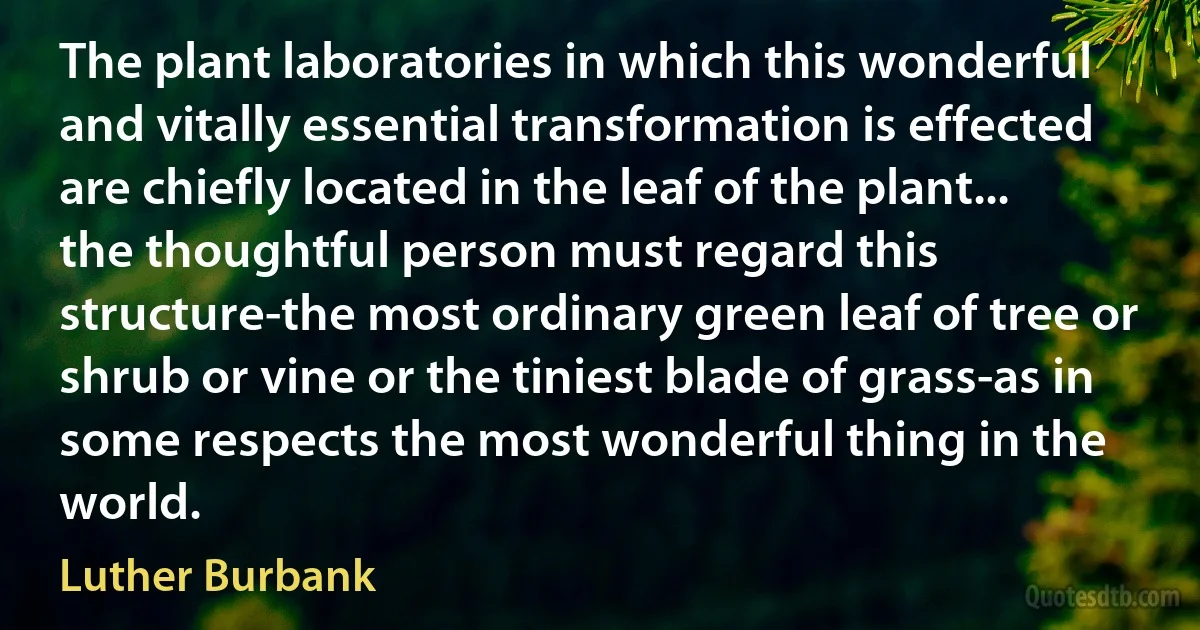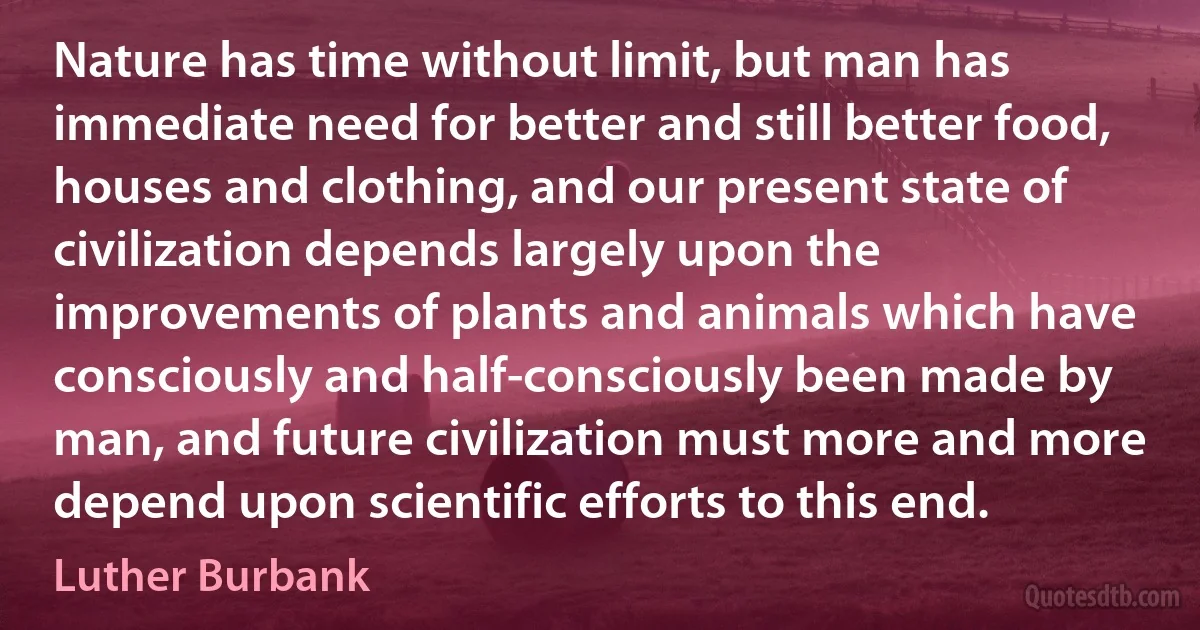Luther Burbank quotes - page 2
We may compare this sum of the life forces, which we call heredity, to the character of a sensitive plate in the camera. Outside pictures impress themselves more or less distinctly on the sensitive plate... Stored within heredity are all joys, sorrows, loves, hates, music, art, temples, palaces, pyramids, hovels, kings, queens, paupers, bards, prophets and philosophers, oceans, caves, volcanoes, floods, earthquakes, wars, triumphs, defeats, reverence, courage, wisdom, virtue, love and beauty, time, space, and all the mysteries of the universe. The appropriate environments will bring out and intensify all these general human hereditary experiences and quicken them again into life and action, thus modifying for good or evil, character-heredity-destiny.

Luther Burbank
Let me lay emphasis on the opportunity now presented in the United States for observing and, if we are wise, aiding in what I think it fair to say is the grandest opportunity ever presented of developing the finest race the world has ever known out of the vast mingling of races brought here by immigration.

Luther Burbank
The richest soil that was ever prepared would not grow a single blade of grass or the tiniest Weed if that soil were absolutely dry. ...There must be water in the soil to dissolve out and transfer its elements in order that the rootlets of the plant shall be able to make the slightest use of these elements. ...But ...a plant may grow and thrive for a time quite without the presence of soil if its roots are placed in water. ... some of the richest soils in the world are those that are absolutely barren and fully merit the designation of desert lands because water is lacking.

Luther Burbank
Do not be cross with the child; you cannot afford it. If you are cultivating a plant, developing it into something finer and nobler, you must love it, not hate it; be gentle with it, not abusive; be firm, never harsh. I give the plants upon which I am at work in a test, whether a single one or a hundred thousand, the best possible environment. So should it be with a child, if you want to develop it in right ways. Let the children have music, let them have pictures, let them have laughter, let them have a good time; not an idle time but one full of cheerful occupation. Surround them with all the beautiful things you can. Plants should be given sun and air and the blue sky; give them to your boys and girls. ...for all the years. We cannot treat a plant tenderly one day and harshly the next; they cannot stand it. Remember that you are training not only for to-day, but for all the future, for all posterity.

Luther Burbank
Here appears a child plainly not normal, what shall we do with him? Shall we, as some have advocated, even from Spartan days, hold that the weaklings should be destroyed? No. In cultivating plant life, while we destroy much that is unfit, we are constantly on the lookout for what has been called the abnormal, that which springs apart in new lines. How many plants are there in the world to-day that were not in one sense once abnormalities? No; it is the influence of cultivation, of selection, of surroundings, of environment, that makes the change from the abnormal to the normal. From the children we are led to call abnormal, may come, under wise cultivation and training, splendid normal natures.

Luther Burbank
It is increasingly necessary to impress the fact that there are two distinct lines in the improvement of any race: the environment which brings individuals up to their best possibilities; the other, ten thousand times more important and effective, selection of the best individuals through a series of generations.

Luther Burbank


